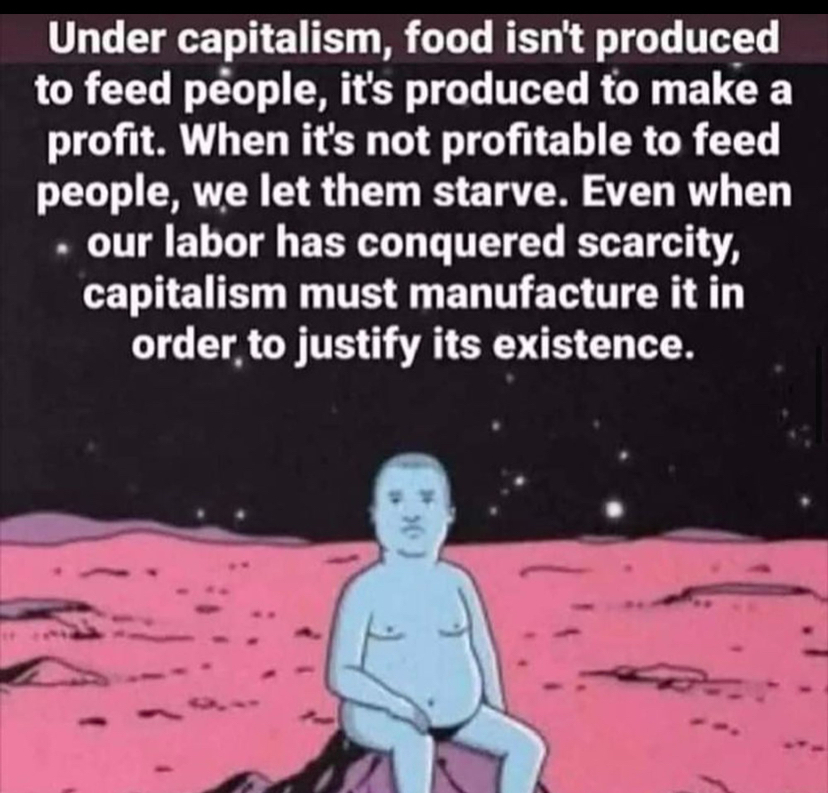this post was submitted on 01 Aug 2024
866 points (94.7% liked)
Political Memes
6335 readers
3473 users here now
Welcome to politcal memes!
These are our rules:
Be civil
Jokes are okay, but don’t intentionally harass or disturb any member of our community. Sexism, racism and bigotry are not allowed. Good faith argumentation only. No posts discouraging people to vote or shaming people for voting.
No misinformation
Don’t post any intentional misinformation. When asked by mods, provide sources for any claims you make.
Posts should be memes
Random pictures do not qualify as memes. Relevance to politics is required.
No bots, spam or self-promotion
Follow instance rules, ask for your bot to be allowed on this community.
founded 2 years ago
MODERATORS
you are viewing a single comment's thread
view the rest of the comments
view the rest of the comments

That goes beyond capitalism. People are just selfish. The hoarding of wealth was a thing way before capitalism. I think the left sort of shoots itself in the foot by obsessing over capitalism and ignoring the much deeper cause of a lot of societal ills. Being evil is part of human nature, just as much as being benevolent is.
Not really.
There have been extensive sociological studies over this. Condition in a capitalist society and the promotion of the “homo economicus” model continually reinforces “greediness” and leads to people in capitalist societies being far “greedier” on average.
It isn’t a natural thing, it is conditioned. Obviously everyone is greedy to an extent. But in anthropological examinations of different forms of societies, altruism scored far higher than greediness in non-capitalistic societies.
Kate Raworth, Oxford Economist, wrote an excellent chapter about this in her book called “doughnut economics”. The chapter is “Nurture Human Nature”.
The view that all humans are greedy and rational was promoted by Adam Smith and John Stuart Mill and is the precursing foundation of capitalism. But modern economics have rejected this view as it has been proven to be inaccurate, and increasingly rely on theoretical models built within behavioural economics.